A step in the right direction
Updated: 2013-03-22 07:08
By Zhou Feng(China Daily)
|
||||||||
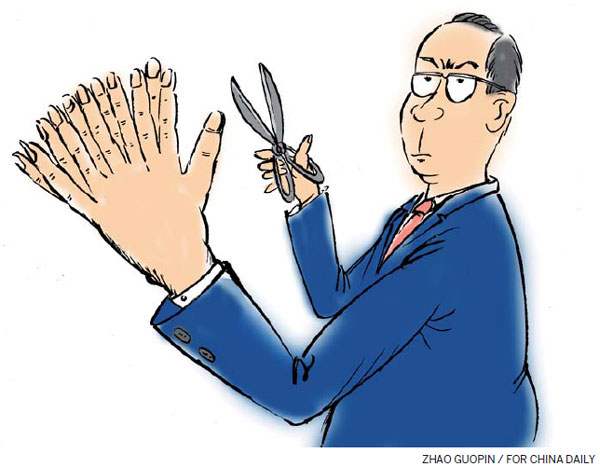
China must press ahead with more government reforms to reap future dividends
Action and inaction are often the words used by experts to differentiate the government functioning in China and the United States.
Though this differentiation does veer toward exaggeration, it does however, reveal the stark differences in the functioning of the two governments. In China, the government is big while the market is small, whereas it is the other way round in the US.
But that seems to be changing as China is now looking to press ahead with a small government. Though the recent attempt to streamline the cabinet by creating mega-ministries seems to be a move in the right direction, it is something that needs sustained efforts in the long run.
The recent cabinet revamp makes the State Council headed by Premier Li Keqiang the smallest in terms of the ministries it has under it. To be precise, it has 25 ministry-level departments, two fewer than in the previous government. But the downsizing makes sense, as it will help eliminate overlaps, cut red tape and prevent government departments from passing the buck.
The merger of the Ministry of Health and the National Population and Family Planning Commission into one unit is expected to bring more conveniences to residents, at least to those who would apply to have a second child.
Other restructuring moves also have their reasons. Combining two media regulators, one focusing on press and publication and the other on radio, film and TV, is an answer to the times as media groups are operating across various platforms these days.
Incorporating the agency that oversees electricity with the National Energy Administration is also a wise step, as electricity is an important cog in the energy sector that needs to be administered under a single authority.
The State Oceanic Administration has been given more power under the new reforms. Non-military sea patrolling done by several departments including the Ministry of Public Security, the Customs and the Ministry of Agriculture, is now concentrated under one administration.
The change is also in line with China's growing ocean ambition and comes at a time when Beijing is embroiled in sea disputes with a few neighbors. Transferring the sea patrolling job to a single agency helps serve China's goal of reinforcing its control over the disputed waters.
The function of regulating pig slaughter was transferred from the Ministry of Commerce to the Ministry of Agriculture. It seems to be a reasonable change, considering that commerce officials know trade aspects better, but certainly are less informed than their counterparts in the Agriculture Ministry on matters relating to animal welfare.
The most significant of all the recent changes was the decision to dismantle the Ministry of Railways, or as some experts put it the "last fortress of the planned economy". The regulatory function of the railways has been transferred to the Ministry of Transport, while a new company, China Railway Corp, will run its commercial operations.
For years, the Ministry of Railways has been running an independent empire. It used to have its own police force, policymaking body and business entities. Dubbed "Big Brother Railway", it was not only a regulator, but a player and a supervisor too.
That all-roles-in-one scenario made the ministry a hotbed of corruption and an example of poor efficiency. The weakness of the ministry was exposed in a slew of incidents that included the investigation of former minister Liu Zhijun for commercial irregularities, and the Wenzhou high-speed train crash that killed 39 people in 2011.
Past experiences have proven that dismantling a powerful ministry can boost the reform and development of the sector it used to regulate. The regulation and operation of the post and telecom sector was earlier under a single ministry. It was after the ministry was scrapped that China's telecom industry started to take off and went on to pursue several market-oriented reforms.
It is reasonable to expect that China's railway sector will also develop on a healthy track after the ministry of railways becomes a thing of the past. Although, the newly incorporated China Railway Corp that inherits the commercial part of the ministry still monopolizes the railway operation business, the separation of the regulatory power and the commercial operation can help strengthen supervision and reduce the possibilities of corruption.
However that does not mean that all is well in this round of restructuring.
The biggest problem with the recent reforms is that the changes made are mostly a redistribution of the power within the cabinet. It fails to address the core issue of transferring the government power to the market and society.
The National Development and Reform Commission, often dubbed "mini-State Council" to reflect its big power in policymaking, has not been downsized this time. Instead, it has taken on the family planning policymaking.
There is no doubt the commission has too much power. It is a policymaker, a regulator and a supervisor. Its right to approve big projects, particularly, makes it an attractive place to work.
It is important to review the functioning of the commission and other State Council departments to ensure that they do not have excessive powers that should instead have been in hands of the market and society.
China is by no means an enthusiastic follower of the principle of "small government, big market", as its government shoulders a lot of responsibilities, many of which could have been done by businesses, social groups and individuals. Among all the roles it plays, being an investor is the most impressive. Through the state companies it controls, the government has succeeded in fueling the economy by multiplying fixed assets.
A recent example of this was the government's 4-trillion-yuan ($640 billion; 495 billion euros) stimulus package in 2008 when the global financial crisis took a toll on the country.
However, when investment becomes a government job, it also creates a host of problems such as state monopoly, duplication of projects, wastage of natural resources, poor efficiency, imbalanced distribution of social resources and larger income gap.
All these could have been avoided in the first place if the government had left investment, especially in industries that are not related to national security or strategy, in the hands of private and foreign investors.
Past experiences show that markets often flourish when there is less government regulation.
The Ministry of Commerce's approval rights for foreign trade permits and retail licenses were scrapped in the early 2000s. The deregulation did not trigger chaos in the trade and retail markets as expected. Instead, China's trade and retail skyrocketed and its homegrown companies grew strongly to an extent that even foreign brands cannot compete against them, as seen in the China exit of several global retail giants such as Best Buy of the US and Metro of Germany. The trade and retail sectors have proven to be two of the three major economic growth engines in the past decade.
Now it is high time to improve the third engine - fixed-asset investment. If the National Development and Reform Commission's power to approve infrastructure projects are curbed, the depth and breadth of the investment will certainly improve.
The author is a financial analyst in Shanghai. The views do not necessarily reflect those of China Daily.
(China Daily 03/22/2013 page7)
- Fireworks sales fall before Lunar New Year
- Mountain 'Spiderman' collects garbage at a cliff
- Infographic: Xi's nationwide journey against poverty
- Train tickets to Hainan hardest to purchase
- Outbound travel market far from mature, claims report
- Prone cycling enthusiast wants more to get out of the saddle
- Fog descends across London, forces flights cancellations
- German chancellor attends carnival reception
- Signs of solutions loom in Syria with int'l approach in Astana
- Europe's nationalist leaders kick off year of election hopes
- Theresa May tries to dispel Brexit worries at Davos forum
- Gambians, tourists flee on eve of deadline for leader to surrender power

 People across China greet upcoming Spring Festival
People across China greet upcoming Spring Festival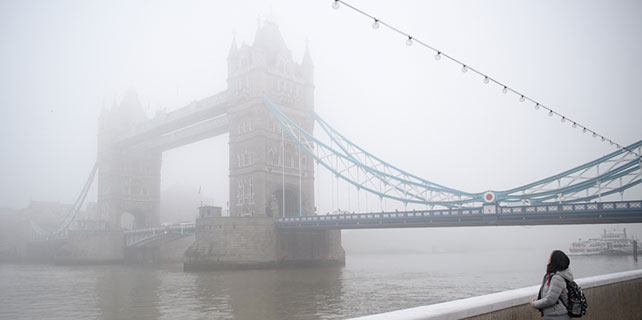
 Fog descends across London, forces flights cancellations
Fog descends across London, forces flights cancellations
 Top 10 best-selling car models in China
Top 10 best-selling car models in China
 Chinese youth: Learning by helping
Chinese youth: Learning by helping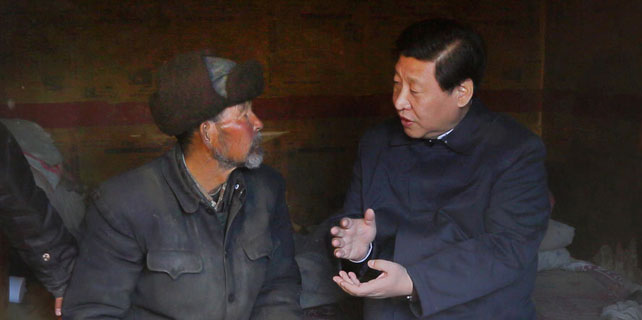
 Xi's inspection tours ahead of Spring Festival
Xi's inspection tours ahead of Spring Festival
 The moment migrant worker met son after 24-hour journey
The moment migrant worker met son after 24-hour journey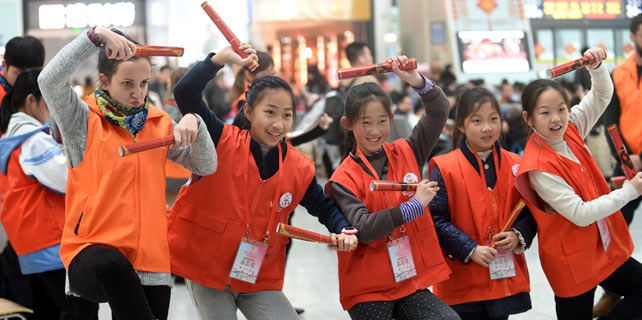
 Offering holiday cheer during train station travel rush
Offering holiday cheer during train station travel rush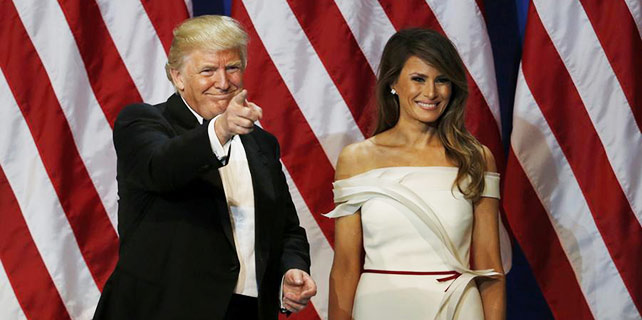
 Donald Trump's first weekend as US president
Donald Trump's first weekend as US president
Most Viewed
Editor's Picks

|
|
|
|
|
|
Today's Top News
China, Allies ponder US role after TPP withdrawal
Petition push on Nanjing bill
For one day, London's smog quotient was greater than Beijing's
China persists with other FTAs after US leaves TPP
Foxconn CEO met with official in Pennsylvania
Cui: China doesn't want a trade war
Trump moving forward with border wall, weighs refugee cuts
Mainland investors snap up overseas real estate
US Weekly

|

|


















